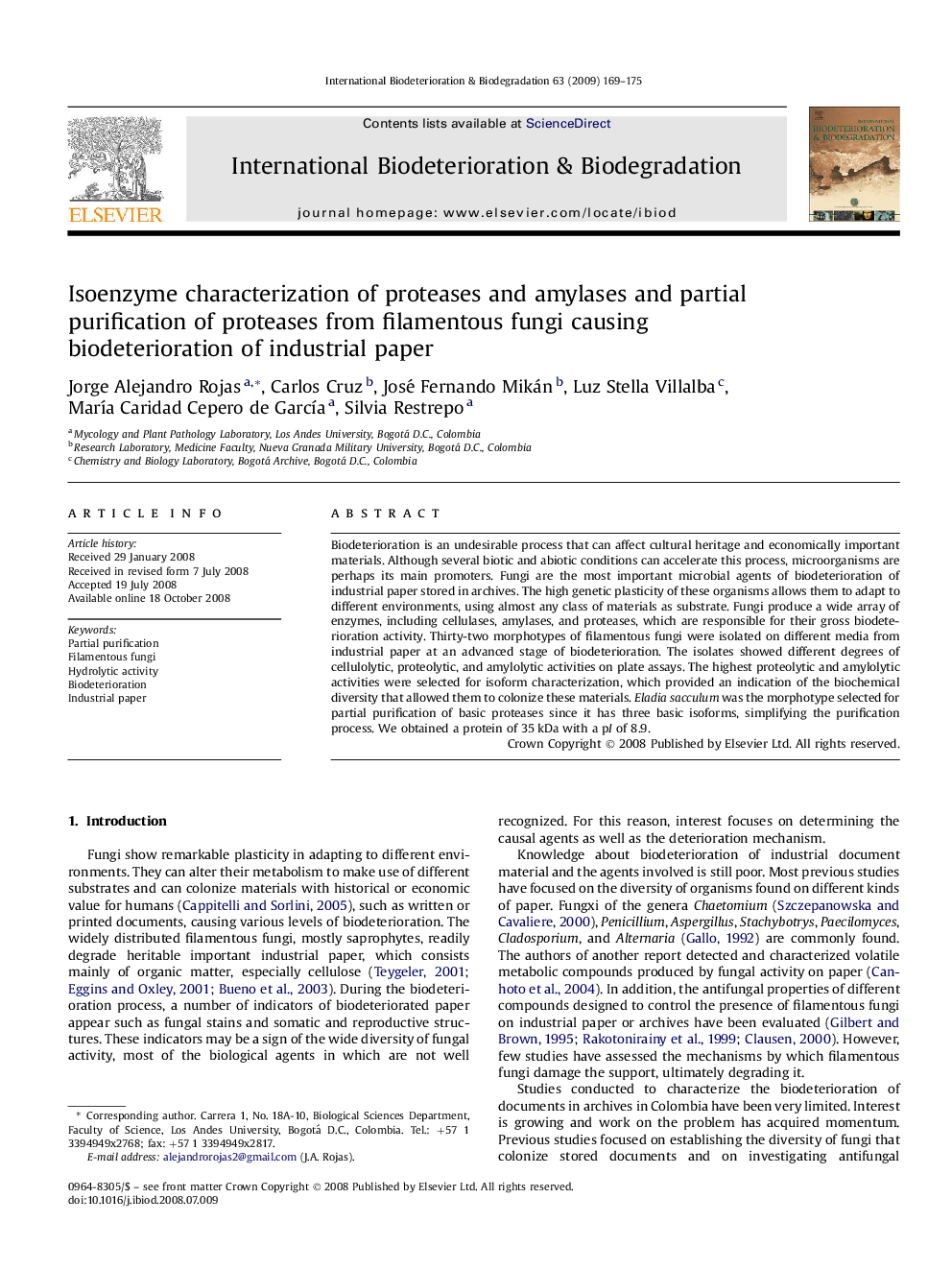| Article ID | Journal | Published Year | Pages | File Type |
|---|---|---|---|---|
| 4365435 | International Biodeterioration & Biodegradation | 2009 | 7 Pages |
Biodeterioration is an undesirable process that can affect cultural heritage and economically important materials. Although several biotic and abiotic conditions can accelerate this process, microorganisms are perhaps its main promoters. Fungi are the most important microbial agents of biodeterioration of industrial paper stored in archives. The high genetic plasticity of these organisms allows them to adapt to different environments, using almost any class of materials as substrate. Fungi produce a wide array of enzymes, including cellulases, amylases, and proteases, which are responsible for their gross biodeterioration activity. Thirty-two morphotypes of filamentous fungi were isolated on different media from industrial paper at an advanced stage of biodeterioration. The isolates showed different degrees of cellulolytic, proteolytic, and amylolytic activities on plate assays. The highest proteolytic and amylolytic activities were selected for isoform characterization, which provided an indication of the biochemical diversity that allowed them to colonize these materials. Eladia sacculum was the morphotype selected for partial purification of basic proteases since it has three basic isoforms, simplifying the purification process. We obtained a protein of 35 kDa with a pI of 8.9.
